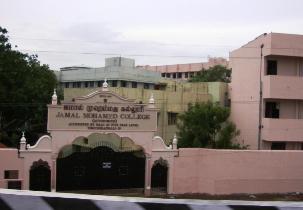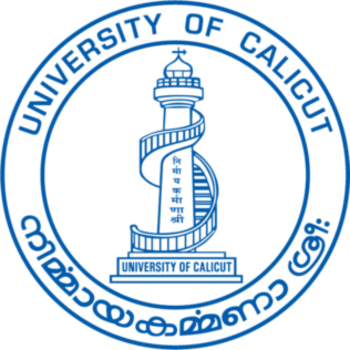Bihar Agricultural University Bhagalpur has established itself as a key institution for agricultural education in Eastern India, with a consistent focus on bridging academic excellence and industry readiness. The university's placement cell actively cultivates corporate partnerships to ensure graduates access diverse opportunities in agriculture, horticulture, veterinary sciences, and research sectors. While placement outcomes vary across disciplines, the institution maintains robust ties with agribusiness firms, government bodies, and research organizations to facilitate career pathways for students.
- Bihar Agricultural University Bhagalpur-Placement Overview
- Bihar Agricultural University Bhagalpur-Analysis of Placement Trends
- Bihar Agricultural University Bhagalpur-Placement Process and Recruiter Engagement
- Bihar Agricultural University Bhagalpur-Industry Trends Shaping Opportunities
- Bihar Agricultural University Bhagalpur-Career Pathways for Graduates
Bihar Agricultural University Bhagalpur-Placement Overview
| Branch/Course | Average Package (LPA) | Highest Package (LPA) | % Placed / No. Placed | College Average Placement (LPA) | Additional Info | Student Review on Placement Data |
| B.Sc. Agriculture | 3.5 | 6 | 70% | 4.5 | Full-time, 4 years | Placements are average with roles in agribusiness and government sectors |
| B.Sc. Horticulture | 3.2 | 5.5 | 65% | 4.5 | Full-time, 4 years | Limited companies visit for horticulture roles |
| M.Sc. Agriculture | 4.5 | 8 | 75% | 4.5 | 2 years, specializations | Better placements for M.Sc. in core agricultural research |
| M.V.Sc. | 4 | 7 | 60% | 4.5 | 2 years | Fewer opportunities in veterinary sciences |
| Ph.D. Agriculture | 5 | 10 | 50% | 4.5 | 3 years | Mostly placed in research institutions and universities |
Bihar Agricultural University Bhagalpur-Analysis of Placement Trends
B.Sc. programs demonstrate steady demand, with agriculture placements outperforming horticulture. The 70% placement rate for B.Sc. Agriculture graduates highlights opportunities in agribusiness management, government agricultural departments, and cooperative societies. Horticulture graduates face more limited engagement, reflecting broader industry gaps in specialized crop production roles. Postgraduate courses show stronger outcomes, particularly for M.Sc. Agriculture specializations. Roles in agricultural research, seed technology, and sustainable farming practices drive higher packages, with some graduates securing positions in multinational agribusiness firms. The M.V.Sc. program, while having lower placement metrics, aligns with national trends where veterinary sciences increasingly intersect with livestock management and dairy technology. Doctoral candidates typically transition into academia or research institutions, contributing to agricultural innovation. The 50% placement rate for Ph.D. students underscores the niche demand for advanced research expertise in agricultural universities and policy think tanks.
Bihar Agricultural University Bhagalpur-Placement Process and Recruiter Engagement
The university’s placement cell operates year-round to connect students with potential employers through campus drives, industry workshops, and internships. Key strategies include:
- Corporate partnerships: Regular recruitment from agribusiness leaders, nationalized banks, and agricultural input companies.
- Skill development: Training in precision farming, agricultural biotechnology, and supply chain management to enhance employability.
- Government collaborations: Facilitating roles in state agricultural departments and central research institutes like ICAR.
Recruiters typically seek candidates with practical field experience, leading to pre-placement offers for students engaged in rural innovation projects or farm-management internships.
Bihar Agricultural University Bhagalpur-Industry Trends Shaping Opportunities
Agricultural education increasingly intersects with technology and sustainability, creating emerging pathways:
- Agri-tech startups: Roles in drone-based crop monitoring, AI-driven yield prediction, and digital supply chains.
- Sustainable practices: Demand for specialists in organic farming, water conservation, and climate-resilient agriculture.
- Export-oriented agribusiness: Opportunities in global supply chains for horticulture produce and processed foods.
Government initiatives like the National Agricultural Market (e-NAM) and crop insurance schemes further amplify demand for trained professionals in policy implementation and rural development.
Bihar Agricultural University Bhagalpur-Career Pathways for Graduates
Beyond corporate roles, graduates explore diverse trajectories:
- Entrepreneurship: Launching ventures in organic produce, agro-processing, or farm advisory services.
- Research: Contributing to public institutions like ICAR or private R&D divisions focused on hybrid crops and biofertilizers.
- Higher education: Pursuing specialized certifications in agricultural economics or food technology to access global opportunities.
The university supports these pathways through incubation centers and alumni networks that mentor students in venture development. Bihar Agricultural University Bhagalpur continues to strengthen its placement ecosystem by adapting curricula to technological advancements and market needs. While core agricultural programs remain dominant, emerging specializations in agri-tech and environmental sustainability show promising growth. The institution’s focus on practical training and industry integration positions graduates to lead India’s next agricultural transformation, contributing to food security and rural economic development.










